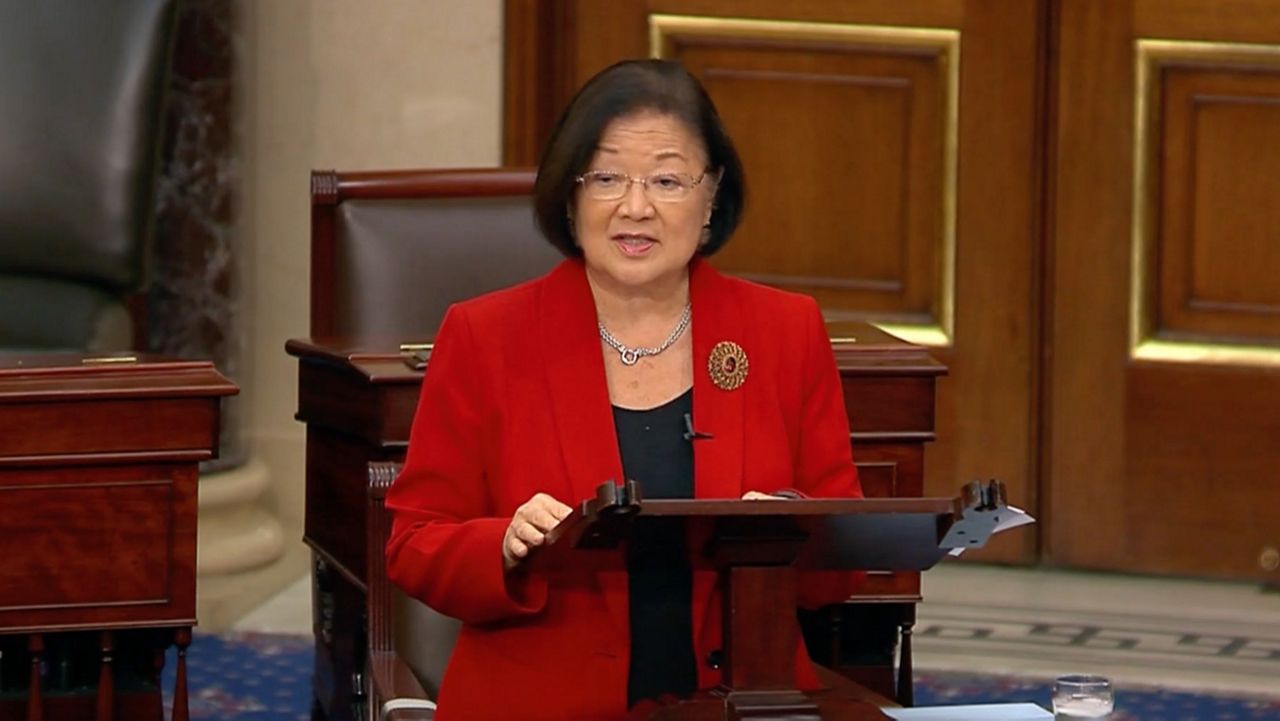WASHINGTON — U.S. Sen. Mazie Hirono, D-Hawaii, spoke out Wednesday about potentially “disastrous” consequences should the Supreme Court eliminate the Chevron doctrine in its pending decision on Loper Bright Enterprises v. Raimondo.
The doctrine, also known as the Chevron deference, was established in the 1984 case Chevron USA, Inc. v. Natural Resources Defense Council, Inc. In that case, the court held that when Congress delegates a federal agency to administer a federal statute, courts will defer to that agency’s interpretation of the statute if it is ambiguous or unclear and may not substitute their own interpretation.
“To be clear, this case is not about the so-called major questions doctrine, but about the sorts of day-to-day decisions that federal agency experts have to make when implementing programs to protect the American people,” Hirono said in comments on the Senate floor. “It would empower the hundreds of individual federal judges to overrule carefully considered rule-making decisions by agency experts, turning a consistent regulatory framework into a chaotic mess of conflicting opinions.”
While the doctrine was initially embraced by conservatives as a check against judicial activism, Hirono said contemporary far-right conservatives now view it as an impediment to consolidating power and enabling conservative judges to legislate from the bench.
“Eliminating Chevron now, after more than four decades, would sow chaos and confusion on agency actions moving forward, as well as the nearly 18,000 federal cases that have been decided based on the Chevron doctrine,” said Hirono, a member of the Senate Judiciary Committee. “And even if the Court stops short of fully eliminating Chevron, significantly narrowing it will have much the same effect. Overturning Chevron is yet one more component of the far-right’s broader agenda to capture the courts, advance their conservative ideological agenda, and hollow out our regulatory system.”
Hirono said the Chevron doctrine helps to ensure that important policy decisions are made by experts in the respective fields rather than those without any practical connection to the subject matter.
“Who gets to determine the safety of the air we breathe, environmental scientists at the EPA or federal judges?,” Hirono asked. ”Who decides whether or not a new drug is actually effective, doctors at the (Food and Drug Administration) or federal judges? Who determines whether nursing homes are meeting safety standards, elder-care experts at (the Department of Health and Human Services) or federal judges?
Michael Tsai covers local and state politics for Spectrum News Hawaii. He can be reached at michael.tsai@charter.com.



